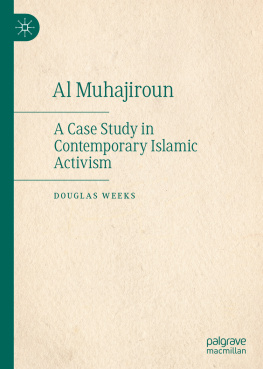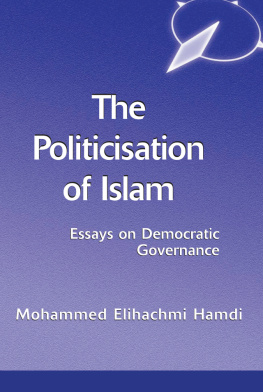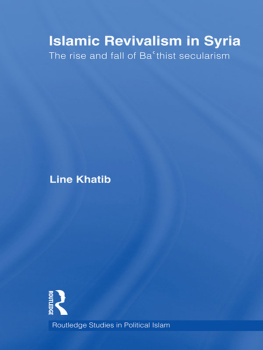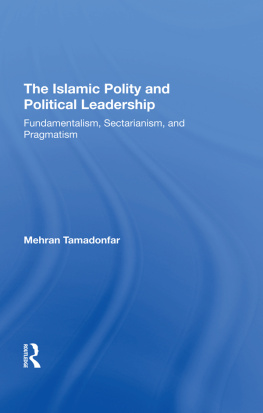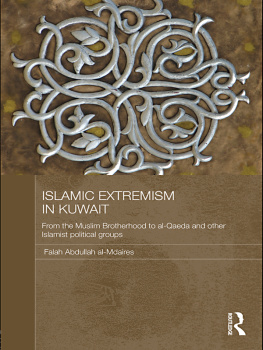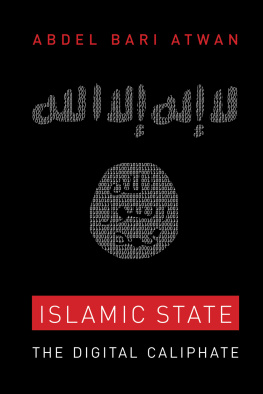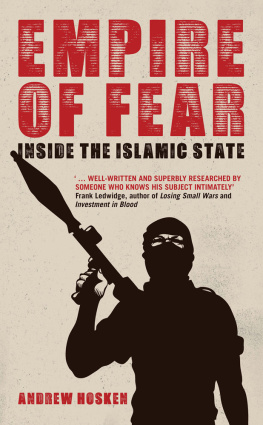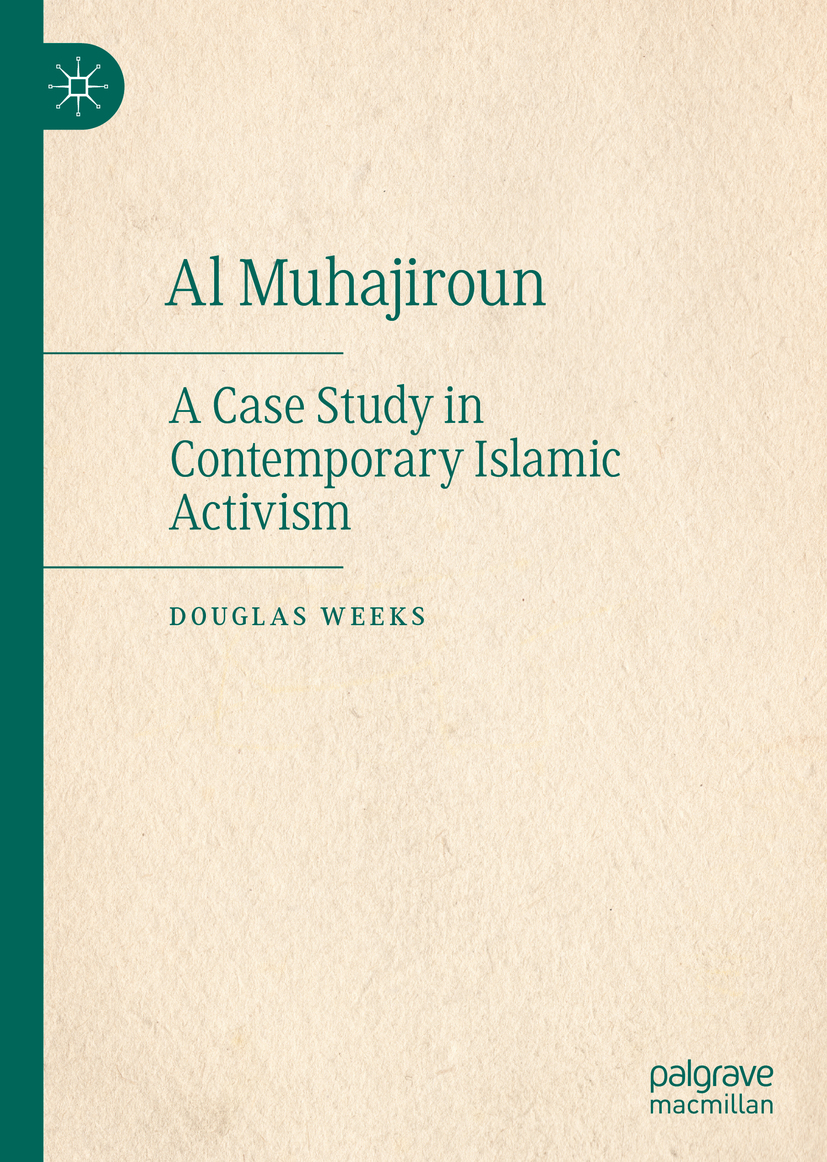Douglas Weeks
Al Muhajiroun
A Case Study in Contemporary Islamic Activism
Douglas Weeks
School of Criminology, Criminal Justice and Emergency Management, California State University, Long Beach, Long Beach, CA, USA
ISBN 978-3-030-35839-6 e-ISBN 978-3-030-35840-2
https://doi.org/10.1007/978-3-030-35840-2
The Editor(s) (if applicable) and The Author(s) 2020
This work is subject to copyright. All rights are solely and exclusively licensed by the Publisher, whether the whole or part of the material is concerned, specifically the rights of translation, reprinting, reuse of illustrations, recitation, broadcasting, reproduction on microfilms or in any other physical way, and transmission or information storage and retrieval, electronic adaptation, computer software, or by similar or dissimilar methodology now known or hereafter developed.
The use of general descriptive names, registered names, trademarks, service marks, etc. in this publication does not imply, even in the absence of a specific statement, that such names are exempt from the relevant protective laws and regulations and therefore free for general use.
The publisher, the authors and the editors are safe to assume that the advice and information in this book are believed to be true and accurate at the date of publication. Neither the publisher nor the authors or the editors give a warranty, expressed or implied, with respect to the material contained herein or for any errors or omissions that may have been made. The publisher remains neutral with regard to jurisdictional claims in published maps and institutional affiliations.
This Palgrave Macmillan imprint is published by the registered company Springer Nature Switzerland AG.
The registered company address is: Gewerbestrasse 11, 6330 Cham, Switzerland
A fascinating and thought-provoking book. Based on 9 years of ethnographic research and hundreds of interviews, Douglas Weeks sheds compelling fresh light on Al Muhajiroun and its descendants. In doing so, he challenges many of the assumptions routinely made about the threat Al Muhajiroun posed, as well as about our overall understanding of the nature of radicalisation in the UK.
Andrew Silke,Professor of Terrorism, Risk, and Resilience, Cranfield University, UK
This book challenges many of the prevailing assumptions about the nature of Islamist movements, and explores them in a detailed manner that hasnt previously been explored at an anthropological level. Douglas Weeks analyses al Muhajirouns claims to theological authenticity whilst avoiding clichs. This book questions many assumptions made by government and commentators trying to connect the likes of al-Muhajiroun and its sister groups to terror today. A must read for everyone involved at an academic or professional level.
Rashad Ali,Resident Senior Fellow, Institute for Strategic Dialogue, UK
Douglas Weeks has written a fascinating and authoritative ethnographic account of the UK-based extremist group, al Muhajiroun. In this immensely rich case study, Weeks sheds new light on the dynamics and dimensions of radical Islamist activism and warns of the dangers of government responses that fail to properly contextualize and counter homegrown extremism and radicalization.
Professor Bruce Hoffman,Georgetown University, Washington, DC, USA
To MomIts finally done!
Preface
I spent my adult life as a career firefighter and paramedic, running into burning buildings while others were running out, and saw the best and worst of human behavior. With the exception of a 3-year stint working for a rural fire department in Colorado, I spent the remainder of my time (26 years) working in very urban settings in southern California.
For the first 15 years of my career, I happily lived the life of a career firefighter . However, around the midpoint of my career I took an unexpected detour into the world of counterterrorism that has dominated my professional life ever since. In 1995, while the FBI and local authorities were managing a terror related threat at Disneyland (California), conflicts arose. In the aftermath, the Los Angeles FBI field office made a commitment to work more closely with local authorities and I was begrudgingly nominated to liaise with them.
The rise in militia movements in the US, the Murrah building bombing in Oklahoma City, and the sarin attack in Tokyo signaled a more pronounced terror threat. In response, another fire officer from the neighboring City of Anaheim and I were tasked with forming an ad hoc committee to develop a multi-agency multi-discipline terrorism response protocol for regional police and fire personnel. To accomplish that task, my counterpart and I were sent to every possible training opportunity across the US. We attended courses on chemical and biological warfare, nuclear materials, and of course bombs, and worked very closely with the military and FBI . Our FBI counterparts were all bomb technicians, and we spent a good deal of time dragging old cars out to the desert, building various bombs, blowing them up, and then then doing the post blast investigation. In all honesty, it was great fun.
When 9/11 happened, the threat picture escalated exponentially. The Second Intifada was also in full swing in Israel /Palestine and suicide bombings were quickly rising to the top of the threat profile. After a chance meeting with a chief fire officer from Israel at a conference in Los Angeles, I received what would become several state sponsored invitations to travel to Israel to learn bomb response protocol from the Israelis. I spent considerable time with the police (especially the Jerusalem Bomb Squad), fire, emergency medical, religious leaders, and military groups there. I received similar invitations from the Police and Fire Services in Northern Ireland and made trips there as well.
The more I saw, the more I realized that it was not just about response. There was a need to understand what the issues were that drove those conflicts through the human perspective. I also realized that I was only receiving the government sanctioned assessment of the threat. In response, during my trips overseas, I began to venture more and more into the neighborhoods and speak with people who offered alternative views.
Whether in Northern Ireland or Israel , wandering into the wrong neighborhood or pub was dangerous, but I quickly realized that as soon as individuals heard my American accent, the threat to me was immediately reduced. In fact, I found that people were generally eager to engage and offer their perspectives on The Troubles or the occupation.
After sustaining a career ending on the job injury, I was forced to retire from the fire service in late 2009. I decided to leverage my ethnographic experiences and do a PhD at the University of St Andrews which is where the genesis for this book began.
When I first started interacting with the activists, I found they were not only the largest proscribed group operating in the UK, but also the most accessible, and an excellent example of what constitutes contemporary Islamic activism in a Western setting. Moreover, they make an excellent case study of how radicalism actually happens. As will be discussed, radicalisation is first and foremost a social problem that is rooted in identity . It is not the convenient rhetoric that government uses to pejoratively label people it doesnt like nor is it rooted in ideology, although it is exacerbated by ideology. It is about how individuals give meaning to their lives, vent their frustration, bond with others, and establish the role they want to play in society.

